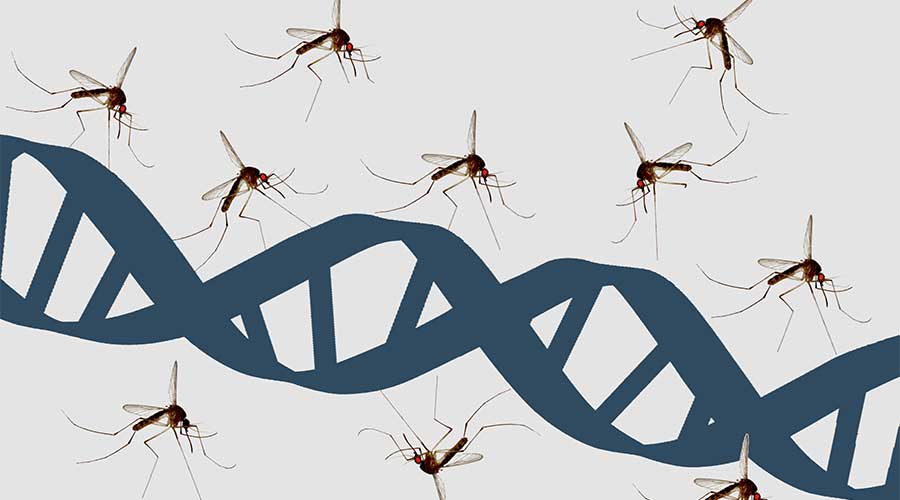A specific kind of mosquitoes has gone through the process of genetic engineering which has been spreading malaria in Pakistan and India. The mosquitoes have been changed by the most modern machine CRISPR –Cas9 and now these mosquitos are incapable of spreading malaria.
In past, the reproductive capabilities along with the capabilities of spreading the disease of the mosquitos have been eradicated at an extensive level by genetic engineering. This time, by CRISPR-Cas9 there have been changes made in the chromosome of the famous mosquito, Anopheles, which have been causing the spread of malaria in Pakistan India.
Read more: Climate change may unearth hidden virus and unleash new epidemics
Now with this new genetic modification, these mosquitos are no longer capable of carrying and transmitting malaria. This process is known as “change in the population or “population modification.”
The Scientists of the University of California, UCI Irwin, and UCI San Diego made such kinds of mosquitos with genetic engineering which is now unable to cause malaria.
The head of this research team, Professor Anthony James said that in the second generation of mosquitos, such genes have been witnessed in which the productive and malaria creating capabilities may be eradicated by sleeping those genes.
In the same way, by the change in the insects, diseases like Leishmaniosis and others may be controlled. The team of experts told that this technology has been devised to rid the people from the disease, caused by the mosquito, Anopheles, found in abundance in Pakistan, and India.
The male mosquitos were found to have more effects than that of the female mosquitos. To cover it, more research was done which met the success and female mosquitos too were made incapable of spreading the disease to the next generation. Scientists are hopeful that soon this technology would be applied to all mosquitos.
Image source





















